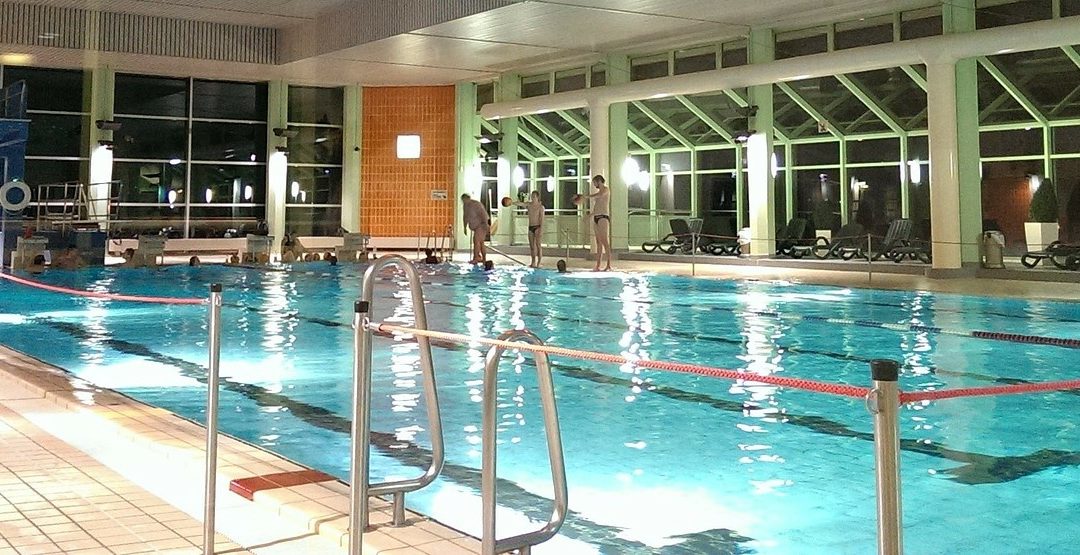We’re all familiar with the pool smell – that smell of chlorine. Many pool patrons come into contact with it when they enter an indoor swimming area and don’t second guess it. Pools are supposed to smell like chlorine, right?
There are two problems with that assumption: One, it’s not chlorine you’re smelling – it’s worse. Two, a clean pool won’t smell.
Why the pool smell?
The pool smell that people often label chlorine is actually the smell of chloramines. Chloramines are a gaseous byproduct of used chlorine in the pool. And yes, used chlorine is the result of someone peeing in the pool along with other side effects of people swimming (sweat, fecal matter, etc.). In other words, the stronger the pool smell, the dirtier the pool probably is. There’s a reason that indoor pools beg its patrons to shower before entering the pool, because the chlorine is only capable of so much cleaning before chloramines are released. Chloramines are also the culprits that cause unpleasant red eyes and itchy skin. They contribute to juvenile asthma and cause swimmer’s cough.
Why are chloramines such a problem for indoor pools?
The problem with chloramines is that theses gases are heavier than air, so they rest just above the pool surface. Even the best of swimmers come up for air eventually, so pool-goers spend most of their time right at the water’s surface, where the chloramines are sitting. Swimmers are breathing in the chloramines, and the gases are getting in their eyes and on their skin. Outdoor pools don’t experience this issue because there is natural airflow. However, indoor pools must physically remove chloramines from the environment, which isn’t always easy.
How do we reduce the chloramine levels at our indoor pool?
There’s no simply method for restoring balance once an indoor pool has a chloramine problem, but that pool smell is a sign that action needs taken. While you can opt for water replacement – draining a portion of the pool that is more contaminated and replacing it with fresh water – it is a costly choice, because you’re sending properly treated water right down the drain. Some facilities invest in HVAC systems that are capable of effectively removing chloramines from the environment but removing the chloramines does not solve the underlying problem of the reason the chloramines are being produced. You may even see indoor pools with overhead fans to help with the removal of chloramines, but this comes with its own expense, as the moving air results in the pool water cooling, which then increases your costs associated with heating the pool.
Reducing Chloramine production at the source
As Ohio’s premier aquatic professionals, Hastings Water Works recommends a more comprehensive solution, through the use of secondary oxidizers and disinfectants like UV and Ozone. Secondary oxidizers and disinfectants are very effective at controlling chloramines by breaking down the combined chlorine in the water, reducing chloramine production. This solves the problem of the “pool smell.” They also have many other pool-related benefits.
The real question is, how do you restore your indoor pool if it’s already contaminated? Good question! Through a process called breakpoint chlorination, we can rid your pool of chloramines and restore balance. It requires closing the pool, because breakpoint chlorination requires us to increase the amount of chlorine in the pool by ten times. Once breakpoint chlorination is achieved, the pool has to return to normal levels to be safe for swimming.
We know that doing the right thing for your indoor pool, especially if you are a hotel or club where the pool is part of the experience, can be difficult. Your patrons will appreciate it, and so will your lifeguards. You can’t force everybody to shower before launching into the pool, but you can do something about the chloramines.
The health cost of not taking action can be much worse. Pool cleanliness is serious business, and if you’re struggling to eliminate that pool smell, we can help you restore balance and keep your pool clean going forward. Remember, the goal is not just for your pool to not smell like a pool; it’s a health and safety issue that can result in lost patronage or worse.
Hastings Water Works is Northeast Ohio’s premier aquatic resource. Learn more about our commercial pool services, and if you’re having a chloramine problem, schedule time to talk to one of our technicians today,

